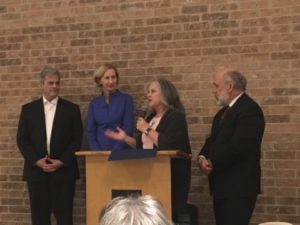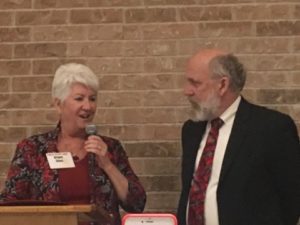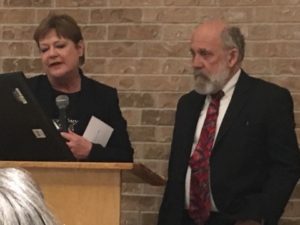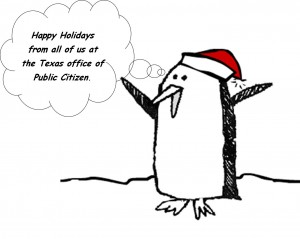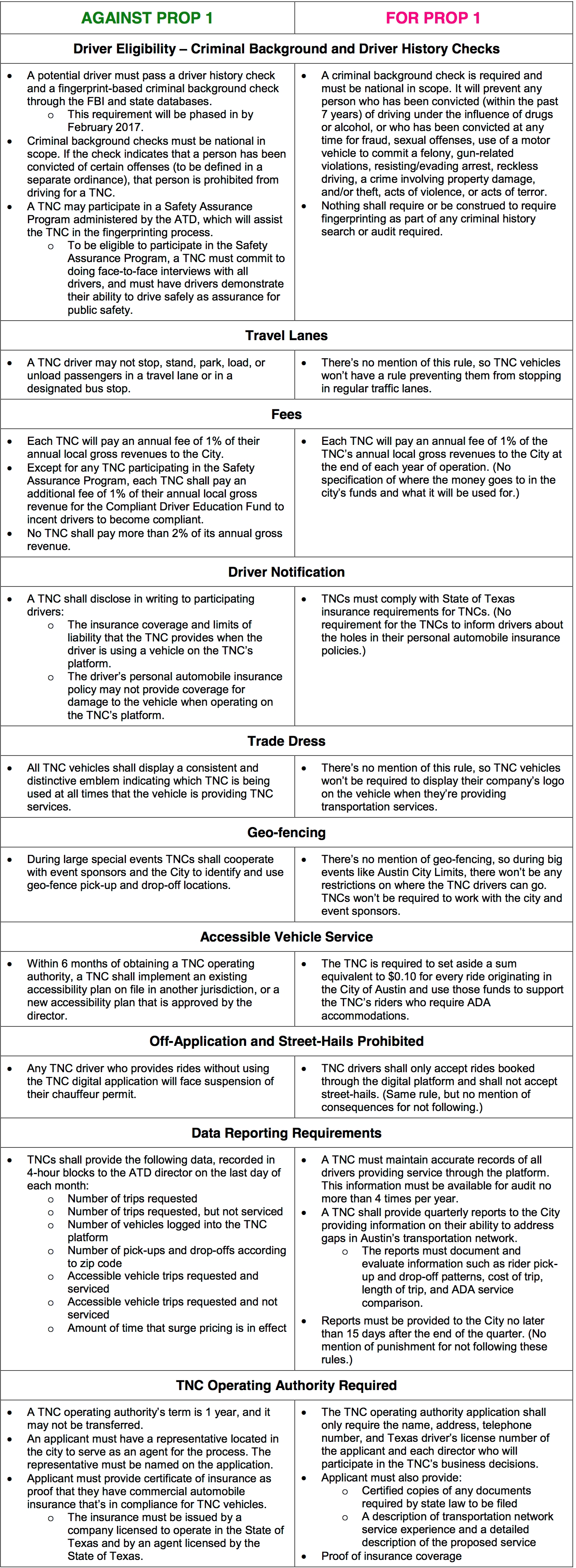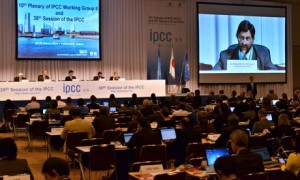Archive for the ‘Consumers’ Category
Public comments for State Bar proposed rules changes due November 1st
Posted in Consumers, Ethics, tagged Texas on October 16, 2018 |
 Volkswagen has pleaded guilty to three felony counts for engineering its cars to evade clean air tests. This fraud was a massive deception against consumers and regulators, led to 40 times the pollution levels permitted for nitrogen oxide and, according to researchers, caused roughly 60 deaths.
Volkswagen has pleaded guilty to three felony counts for engineering its cars to evade clean air tests. This fraud was a massive deception against consumers and regulators, led to 40 times the pollution levels permitted for nitrogen oxide and, according to researchers, caused roughly 60 deaths.
The justice department determined that this level of fraud required tough criminal penalties beyond the many civil cases that have been settled or are still in play. Government prosecutors were right to force Volkswagen to plead guilty to multiple felonies – and not to accept a deferred prosecution deal in place of guilty pleas – but they should have imposed the fines closer to those called for by the sentencing guidelines, which would have been five to almost 10 times higher. The harshest penalties would be exacted against an individual who went on a shooting spree and killed dozens of people. Here, the culprit was a corporation, and we don’t know the names of the people Volkswagen killed. But they died just the same, and the company should be held accountable.
The civil justice system previously forced Volkswagen to make amends to consumers. This fraud was a massive deception against consumers and regulators. In June of last year, Volkswagen agreed to spend up to $14.7 billion to settle allegations of cheating emissions tests and deceiving customers on 2.0 liter diesel vehicles. As part of the settlements, VW agreed to pay Texas $50 million in civil penalties and attorneys’ fees for its violations of the Texas Deceptive Trade Practices Act, which bans false advertising and sale of misrepresented products. About 32,000 diesel cars capable of emissions cheating have been sold in Texas, according to U.S. Environmental Protection Agency figures. That’s compared to about 480,000 nationwide and 11 million globally.
The settlement also includes $2.7 billion for environmental mitigation and and another $2 billion to promote zero-emissions vehicles. About $192 million of the mitigation fund will go to projects in Texas, according to a news release from the state’s attorney general’s office.
Public Citizen Honors Tom “Smitty” Smith
Posted in Air Quality, Campaign Finance, Climate Change, Consumers, Diesel, Efficiency, Ethics, Global Warming, Good Government, Nuclear, Pollution, Radioactive Waste, renewable portfolio standard, Renewables, Right to know, solar, Sunset, Texas Legislature, Transportation, tagged Texas on February 2, 2017 |
After more than three decades of extraordinary work running Public Citizen’s Texas office, “Smitty,” formally known as Thomas Smith, is hanging up his spurs. Smitty is a Texas institution and a national treasure, and on February 1st, we celebrated him right.
Over 200 people attended a retirement dinner for Smitty at the Barr Mansion in Austin, TX on Wednesday evening. Friends and colleagues from around the state who had work with Smitty on issues over his career that included clean energy, ethics reform, pollution mitigation, nuclear waste disposal, etc came to pay homage to a man who had dedicated his life to fighting for a healthier and more equitable world by making government work for the people and by defending democracy from corporate greed.
During the evening, Austin Mayor – Steve Adler, Travis County Commissioner – Brigid Shea, and Dallas County Commissioner – Dr. Theresa Daniel presented Smitty with resolutions passed by the City of Austin, Travis County Commissioners Court and Dallas County Commissioners Court all of which acknowledge Smitty’s contributions to their communities and the state of Texas.

Adrian Shelley (front left) and Rob Weissman (front right) at Tom “Smitty” Smith’s retirement event.
Public Citizen’s President, Robert Weissman, thanked Smitty for his service to Public Citizen for the past 31 years and introduced the new director for the Texas office, Adrian Shelley, the current Executive Director of Air Alliance Houston.
Smitty’ impending departure fromPublic Citizen will leave a big hole in advocacy for progressive issues here in Texas, but both Smitty and Robert Weissman expressed confidence that Adrian would lead the Texas office forward into a new era of progressive advocacy. Adrian is a native Texan from the City of Houston. He has served as the Executive Director of Air Alliance Houston since 2013. He first worked with Air Alliance Houston as a legal fellow in 2010, then as a Community Outreach Coordinator in 2012. In that time, Public Citizen has worked closely with Air Alliance Houston through the Healthy Port Communities Coalition (HPCC), a coalition of nonprofits and community groups which advocates policies to improve public health and safety while encouraging economic growth.
So be assured that Adrian and the Texas staff of Public Citizen are committed to carrying on the battle for justice, for democracy, for air clean and energy and for clean politics. We can and will protect our children and the generations to come. For this, we can still use your help. You can make a tax deductible donation to the Texas office of Public Citizen to help us continue his vital work on climate, transportation, civil justice, consumer protection, ethics, campaign finance reform and more
Wishing you a joyous holiday season
Posted in Consumers, tagged joyous holiday season, Public Citizen, Texas on December 18, 2016 |
As you close out 2016, consider joining or making a gift to Public Citizen’s work – click here.
Thank you and we wish you a safe and happy holiday.
Win! In Precedent-Setting Case, Judge Finds Non-Disparagement Clause Unenforceable; Case Dismissed in Dallas Pet-Sitting Suit
Warning to Other Companies: Don’t Use Non-Disparagement Clauses to Silence Consumers
A Texas state court rightfully has dismissed a lawsuit against a Texas couple who was being sued for criticizing a Dallas pet-sitting business on Yelp. Public Citizen believes that this is the first case involving a non-disparagement clause in a consumer contract in which a court has held the clause unenforceable.
The judge for the 160th District Court of Dallas County dismissed both a libel claim and a non-disparagement clause claim and held that the couple – Robert and Michelle Duchouquette – would be awarded attorney fees as well as sanctions to deter future such lawsuits.
“Seeking to silence negative criticism, the owners of Prestigious Pets may well have put their whole company on the line,” said Paul Alan Levy, the Public Citizen attorney handling the case. “Not only did the company lose business when customers were disgusted over the non-disparagement lawsuit, it now is responsible to pay attorney fees and sanctions. This case should serve as a warning to other companies.”
The story began in October 2015, when the Duchouquettes hired Prestigious Pets to watch their two dogs and a fish while they were on vacation. After being dissatisfied with her experience with the company, Michelle wrote a one-star review on Yelp explaining that she didn’t like the fact that she could not reach the pet sitter directly when problems arose. She also wrote that the fish bowl water appeared cloudy, suggesting that the fish was overfed.
Prestigious Pets then brought a small claims lawsuit against the Duchouquettes, alleging that the review was defamatory and that the posting and subsequent statements to media violated a non-disparagement clause in the fine print of its standard contract. The couple filed an anti-SLAPP motion, seeking to have the suit dismissed because it chilled free speech while lacking a sound legal or factual basis. The company dismissed its small claims proceeding and sued in state district court alleging that the broader media attention resulting from the lawsuit had hurt the company’s business. The company also sought an award of up to one million dollars in damages.
Public Citizen entered the case on behalf of the couple, filing both an appeal from the implicit denial of the anti-SLAPP motion in small claims court and a new anti-SLAPP motion in the Texas district court. The appeal in the County Court, which seeks to recover the roughly $10,000 that the Duchouquettes had to spend for their private counsel in the small claims court, is still pending.
“I am thankful to have a ruling that supports our right to free speech. We should all have the opportunity to express our opinions without the fear of a lawsuit,” said Michelle Duchouquette. “We are so grateful for the attorneys who have supported us through the case. It took lots of hours and many smart minds spending too much time talking about Gordy the betta fish. Thank goodness they did not lose sight of the real issue: the threats posed by non-disparagement clauses to our right to free speech.”
Nicole Williams, Andrew Cookingham and Christopher Dachniwsky from the Dallas firm of Thompson and Knight are co-counsel.
Texas Workers’ Compensation Opt-Out Law Shifts Economic Burden of Workplace Accidents to Workers and Their Families
Posted in Consumers, Jobs, Safety, tagged Texas on May 1, 2016 |
May 1st is Workers’ Memorial Day, and we have much to remember here in Texas. A new Report Finds Construction Injuries and Fatalities Cost Texas Nearly $900 Million Annually
Injuries and fatalities in the construction industry cost Texas an estimated $895.9 million in 2013 alone with workers and their families footing an estimated $447.9 million of the bill, a new Public Citizen and Workers Defense Project report (PDF) shows.
The report, “The Price of Inaction: The Cost of Construction Injuries in the Lone Star State,” quantifies the estimated costs of deaths, injuries and illnesses in the state’s construction industry. The release coincides with Workers’ Memorial Day, a time when labor advocates pause to commemorate those who lost their lives on the job and who suffer from debilitating work-related injuries or illnesses.
In 2013, Texas recorded approximately 5,600 construction industry injuries and illnesses, which required workers to take time off of work to recover. Additionally, 116 Texas construction workers lost their lives during that time.
The report also finds that people of color and immigrants experience disproportionate rates of work-related fatalities in Texas’ construction industry. In 2013, about two out of every three construction workers killed in Texas were Latino. In addition, from 2012 to 2013, fatalities among foreign-born construction workers in the state increased at a much higher rate (47 percent) than the total number of construction worker fatalities during that time (11 percent).
“Our research indicates a pervasive crisis in the Texas construction industry, which unduly burdens people of color, immigrant workers and their families,” said Emily Gardner, worker health and safety advocate for Public Citizen’s Congress Watch division. “Texas lawmakers should immediately enact safeguards protecting construction workers from unsafe worksites.”
“Texas’ construction industry is generating more than $74 billion a year,” said José P. Garza, executive director of Workers Defense Project. “There’s no excuse for the industry to shift the cost of dangerous worksites from employers to injured workers, their families and taxpayers.”
Texas’ misleadingly named “opt out” system, which does not require employers to purchase workers compensation insurance, shifts the costs of injuries and fatalities from employers onto workers. Without a basic social safety net that includes workers’ compensation, construction workers and their families are left without wages while they recover from injuries and struggle to pay high medical bills and other expenses.
To address this problem, Workers Defense Project and Public Citizen recommend Texas lawmakers make several reforms to increase safety for employees. The report calls on the Texas Legislature to:
- Require that all construction employers purchase workers’ compensation coverage for all employees;
- Require that all contractors on publicly funded or publicly subsidized construction sites complete a workplace health and safety prequalification process;
- Establish a Texas Council on Construction Safety and Health;
- Pass a statewide policy establishing a rest break standard for construction workers; and
- Require or incentivize participation in respected third party certification programs like the Better Builder Program.
Austin Uber and Lyft Vote – Breakdown of Proposition 1
Posted in Consumers, Ethics, Good Government, Local Control, Safety, Transportation, tagged Texas on April 18, 2016 |
The Uber/Lyft debate has been raging in Austin for months, but do you know what you’ll actually be voting on? Voting is a right, but being an informed voter is a responsibility.
Proposition 1 is a vote on rules and regulations in Austin for transportation network companies like Uber and Lyft. If you vote AGAINST Prop. 1, you’re voting for the City of Austin’s proposed safety rules. If you vote FOR Prop. 1, you’re voting for Uber and Lyft’s proposed regulations that they personally drafted in retaliation to the Austin City Council’s ordinance. While a lot of the rules in the two ordinances are the same, there are some very important differences as well. To make it easier for voters to understand, we’ve highlighted the differences in the ordinances, and therefore what Austin residents are really voting on at the polls on May 7.
Key:
- AGAINST PROP 1 – City of Austin’s regulations
- FOR PROP 1 – Uber and Lyft’s regulations
- TNC (Transportation Network Company) – an organization, whether a corporation, partnership, sole proprietor, or other form, which provides on-demand transportation services for compensation using an online-enabled application or platform to connect passengers with drivers.
- ATD (Austin Transportation Department) – section of the Austin government that addresses transportation needs and challenges, as well as public safety.
The regulations the City Council passed in December requiring stricter rules than currently in place for Uber and Lyft are not absurd. People who operate pedicabs or horse carriages in the city already have to get fingerprinted. Make no mistake; this is not an issue of keeping Uber and Lyft in Austin. That’s not what the vote is for on May 7. The City Council isn’t kicking anyone out; they’re just leveling the playing field for all TNCs by making sure they follow the same rules. And if these particular companies choose not to do business here, Austin Uber and Lyft drivers will soon be provided with new transportation companies to drive for.
Uber and Lyft have already pumped $2.2 million into this campaign, which is evident in their abundant advertising. This is supposed to be a local issue, but it’s quickly becoming a perfect example of why Citizens United should be repealed. Vote “No” for Prop. 1 and show corporations that they can’t write their own rules and buy local politics in Austin.
Uber and Lyft Inject Corporate Money into Austin Politics
Posted in Consumers, Good Government, Safety, Transportation, tagged Texas on February 28, 2016 |
If you’ve used a taxi or similar transportation service in a major U.S. city recently, you’ve probably heard of Uber or Lyft. Uber and Lyft are two mobile ride hailing companies that were both founded in San Francisco, California. Uber was founded in March 2009 and Lyft was founded in summer 2012. They facilitate peer-to-peer ridesharing and operate under the transportation network company (TNC) label. By summer 2015, Uber’s net worth was valued at $50 billion and Lyft’s net value was $2.5 billion.
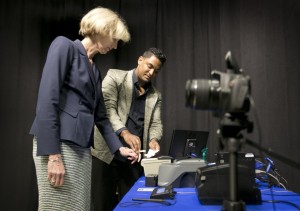
Council Member Ann Kitchen Getting Fingerprinted – Photo by Jay Janner, Austin American Statesman
Uber and Lyft are great options for carpooling, for not having to deal with parking your car downtown, or for worrying about drinking and driving. They also provide convenience by simply using your smartphone to order and pay for a ride. So what’s all the fuss with them about? This past December, the Austin City Council passed an ordinance that, among other things, required all transportation network companies (TNCs), which includes Lyft and Uber, to fingerprint their drivers for background checks. The December ordinance set benchmark goals of having 25% of drivers fingerprinted by May 2016, with gradual increases, and then 99% compliance by February 2017.
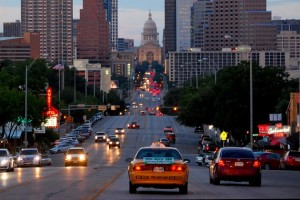
South Congress Capitol View – Photo from Wikimedia
Public safety officials support of the fingerprinting ordinance as necessary for safety. Without fingerprinting, drivers could slip through the background check using false identities. Lyft and Uber are opposed to fingerprinting their “contractors” because they think their background checks are sufficient and that the ordinance opens the door to future regulation that they believe hampers innovation. Taxi drivers, pedicab operators and horse carriage operators are already subject to the same regulations though.
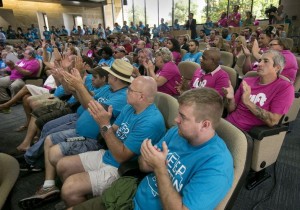
City Council Committee Meeting – Photo by Laura Skelding, Austin American Statesman
Lyft and Uber say that if fingerprinting happens, they’re leaving town. They don’t want to be subjected to regulations they think might stifle future business decisions or that defines them as taxi-like companies. If they’re associated with taxi services, they’ll be subjected to an array of additional rules. This is ironic because Uber and Lyft are in fact very similar to taxis: they provide transportation for passengers and receive payment in exchange. They are “taxi-like” and thus should be subjected to the additional regulations they want to avoid.
What about who the actual drivers are? According to Ben Wear (Austin American Statesman February 15, 2016, pg. B3):
At least ten Austin women filed complaints last year about sexual assaults – seven against ride-hailing drivers, three involving taxis. While the two companies use background checks that look at all 50 states, and they bar applicants with crimes of violence or theft, those background checks only look back seven years. So, someone could have committed a rape or even a homicide 10 or 20 years ago, even in Texas, and the ride-hailing companies likely would not find out about it.
In an undercover investigation, NBC Chicago hired several drivers and ran their own personal background checks on them. They found numerous tickets and questionable driving history. One driver had 26 tickets and one driver was an ex-con who had priors going back two decades including burglary, drugs, and assault. There are clearly people getting through their background check system that shouldn’t be driving for hire. Having the fingerprint submissions that the City Council proposed would make it easier for law enforcement to identify lawbreakers.
A political action committee (PAC) called Ridesharing Works for Austin formed in response to the fingerprinting mandate. The PAC made a petition to fight back against the City Council’s new TNC rules, and they gathered three times more signatures than they needed. The City Council could then either overturn the fingerprinting ordinance passed in December, or place it on the ballot of the next available election for the voters to decide. They went with the latter, so it’s up to Austin voters to decide on May 7.
The Uber and Lyft situation in Austin is a local example of a problem America is experiencing at a federal level – big money in government. The reason Uber and Lyft were able to gather so much support for their petition is because they contributed at least $50,000 in cash and services to the Ridesharing Works PAC. The PAC had canvassers go out, knock on Austin residents’ doors, and gather signatures. Many rideshare drivers also had the petition available in their vehicles for passengers to sign during their rides. Many inaccurately explained the issue to Austin residents as simply “Uber/Lyft vs. the city of Austin”. They told residents that the City Council is forcing Uber and Lyft to leave town, when in reality, if the two companies do leave, it’ll be on their own accord.
The money behind the petition against the fingerprinting ordinance is from big corporations. And those corporations are essentially funding Lyft and Uber’s campaign against safety regulations in Austin. This is exactly what we want to avoid in politics, and it’s happening right here in our city. Corporations coming up with their own rules and going to city hall to demand them is not the way government is supposed to work. It’s a government by the people and for the people, not by corporations and for corporations. If Uber and Lyft succeed in getting the fingerprint mandate overturned, it sets a dangerous precedent for the future. As citizens of the United States of America, we need to question how money from big corporations like Uber and Lyft is influencing our local legislation. Austin voters should consider this when they head to the polls on May 7th.
Consumers to CFPB: End Forced Arbitration
Posted in Consumers, tagged arbitraton, Texas on June 18, 2015 |
The Consumer Financial Protection Bureau Can End Wall Street’s Practice of Stripping Customers’ Right to Go to Court
More than 78,000 consumers are calling on the Consumer Financial Protection Bureau (CFPB) to take swift action to ban forced arbitration clauses in terms attached to financial services and products in a petition delivered to the bureau today. The CFPB is empowered by the Dodd-Frank Wall Street Reform and Consumer Protection Act of 2010 to ban or limit this anti-consumer device in products under its jurisdiction.
Forced arbitration clauses, tucked in the non-negotiable terms of consumer financial products, prevent consumers who have been harmed or ripped off from holding their bank, credit card issuer or other unscrupulous lenders accountable in court. Instead, financial institutions force them to plead their case to a private arbitration provider that is named by the banks before a dispute arises. The result is that consumers cannot practically or fairly resolve disputes with powerful institutions or seek remedies for harm caused by their wrongful conduct.
In March, the CFPB released a 728-page data-based report detailing results of its comprehensive study of financial institutions’ use of forced arbitration. This report shows that forced arbitration clauses hinder cheated consumers from obtaining any relief when corporations break state and federal consumer protection laws.
“These petitions send a loud and clear message: It’s time to end the insidious practice of forced arbitration,” said Nan Aron, president of Alliance for Justice. “The CFPB has the power to give consumers a fair shot at justice against banks and other large financial institutions that often stack the deck against them. It should do so without delay.”
“Forced arbitration functions as a license to steal, making it impossible for customers to hold banks and lenders accountable when they break the law,” said Lisa Donner, executive director of Americans for Financial Reform. “With 78,000 signatures and counting, these petitions demonstrate that consumers can spot a rigged game. They’re counting on the CFPB to take action.”
“Financial institutions pull the rug from under consumers already cheated by predatory lending by also denying them proper legal redress,” said Christine Hines, consumer and civil justice counsel with Public Citizen’s Congress Watch division. “The CFPB has all the evidence it needs to remove forced arbitration from the fine print of financial products and services.”
“Consumers across the country are outraged that corporations and Wall Street banks have granted themselves a license to steal and evade the law using forced arbitration and are looking to the CFPB to stop it,” said Ellen Taverna, legislative director of National Association of Consumer Advocates. “The CFPB must act quickly to prohibit abusive forced arbitration clauses in all consumer financial products under its jurisdiction and restore consumers’ rights to protect themselves.”
“These petitions highlight that this problem isn’t just an abstract legal issue ‒ forced arbitration harms individual consumers by preventing them from protecting themselves against corporations from large banks to smaller payday lenders and credit repair companies,” said David H. Seligman, staff attorney of National Consumer Law Center. “Forced arbitration is a real problem affecting real people, and the CFPB should act quickly to eradicate it.”
“For far too long, forced arbitration has stacked the deck against consumers who have been cheated or harassed by Wall Street,” said Lisa Blue, president of American Association for Justice. “This petition should send a clear message that the American people demand to have their rights restored to hold even the most powerful financial institutions accountable when they break the law.”
Petition: We, the undersigned, call on the Consumer Financial Protection Bureau to prohibit forced arbitration in the terms of service of all consumer financial products and services under its jurisdiction. Stand up for consumers and restore our right to hold banks accountable when they break the law.
Getting off Coal Could Save Texans Billions
Posted in Air Quality, Coal, Consumers, Renewables, tagged Clean Power Plan, Coal, EPA, Texas on March 10, 2015 |
We released a new report today that shows that shifting from coal power to alternative energy sources could save utilities – and indirectly their customers – several billion dollars in capital and annual operating expenses. The switch also would save the Texas public as much as $2.5 billion in pollution-related health care costs and economic losses due to premature mortality.
Using data from government, academic and industry studies, the report demonstrates that renewables like solar, wind and geothermal power are cheaper than coal, once the costs of upgrading plants to control pollution are factored in.
Renewables are a clean, safe and financially smart alternative to coal. Our report shows that replacing our oldest, dirtiest coal plants with alternative energy sources could save 21 to 24 percent in capital and annual operating costs. It’s no longer clean energy that’s expensive. Now coal is too costly to continue.
In coming years, six new or amended U.S. Environmental Protection Agency (EPA) rules will take effect, including the EPA’s tougher ozone standard for Texas, which was discussed during a January EPA hearing in Arlington. The EPA’s Clean Power Plan, proposed in June, will require Texas coal plants to reduce climate-change inducing carbon dioxide emissions, and other new rules will reduce levels of highly toxic mercury, make sure coal ash is disposed of safely and cut down on haze, which obscures views at national parks such as Texas’ Big Bend and Guadalupe Mountains.
But while the long overdue rules will protect the climate and dramatically reduce health care costs, outdated coal plants will have to spend billions in capital and operating costs for pollution-control technology. We compared the cost of alternative energy sources to the price of coal power, once the expense of upgrading to meet new pollution rules is included.
The upshot: A blend of wind, solar and geothermal power, along with some natural gas, could easily replace the power generated by coal plants – and for less money.
(more…)
Historic Proposal for Affordable Clean Energy Will Save Austin $13 – $30 Million Annually in Energy Costs
Posted in Air Quality, Austin Energy, Consumers, Renewables, tagged affordable energy, austin city council, Austin Energy, Texas on August 28, 2014 |
Today, Austin City Council will consider an historic energy proposal from Council Member Chris Riley that would save Austin millions while demonstrating an unprecedented commitment to renewable energy.
The resolution calls for Austin Energy to bring more than 600 megawatts of solar power, enough to power more than 100,000 homes, to its portfolio, phase out the Decker gas-fired power plant and set goals to generate more than 60 percent of its power from renewable sources and eliminate its carbon pollution by 2030.

Councilman Riley spoke at Tuesday’s Affordable Energy Rally in front of City Hall. Photo by Al Braden.
In addition to the diverse support behind Council Member Chris Riley for his proposed Affordable Energy Resolution, Public Citizen’s analysis shows that a key component of the plan is economically sound.
An analysis of the cost of Austin Energy’s most recent solar Request for Proposals (RFP) and projected cost to generate electricity in ERCOT, the Texas grid, over time shows tremendous savings from investing in an additional 600 megawatts of solar for Austin. The cost analysis was conducted for Public Citizen, a consumer watchdog group, using the same planning tools used by ERCOT and found that the solar power proposed in the Affordable Energy Resolution will save Austin consumers between $12.6 and $32 million per year on average compared to building a new natural gas-fired power plant, depending on fluctuations in the gas market.
The IPCC Report Paints Grim Forecast of Future Unless We Act Now to Curb Climate Change
Posted in Climate Change, Consumers, drought, Energy, Global Warming, Health, Water, tagged Carbon Dioxide, climate change, co2, ipcc, Texas, UN on April 9, 2014 |
“Human interference with the climate system is occurring, and climate change poses risks for human and natural systems.” IPCC WGII AR5
The Intergovernmental Panel on Climate Change (IPCC) recently released Part 2 of its Assessment Report showing that work to limit the effects of climate change must begin now. Part 1 came out in September 2013 and showed indisputable evidence that climate change is real, it is happening today, and human influence is the root cause. The report is the fifth such report that has come from the UN.
This week, government officials and top climate scientists are meeting in Berlin to review a 29-page draft from working group 3 of the UN’s IPCC. This third document is expected to be released later this month.
The scope of the second report takes a broad look at how climate change is impacting the Earth’s oceans, coasts, atmosphere, animals, humans and human societies. The report then examines how we must adapt to manage risks associated with climate change.
This is a stern warning coming from the world’s scientific community, and there is little doubt from the experts about the solution: cut pollution from fossil fuels and prepare for the risks associated with a warming world.
The document warns of side effects from a warming world over the next century. There is a high level of consensus from the scientific community that there will be a rise in sea level from melting glaciers, which threatens coastal cities and low-lying nations. There will also be an increase of drier areas, resulting in increased wildfires and drought.
Part of the problem with climate change is that scientists don’t have a crystal ball to predict how the environment will respond to a rise in temperatures. They are trying to predict effects of climate change over the course of decades. Scientists are anticipating that forests ecosystems could collapse and wetland ecosystems could disintegrate. They are expecting that water systems worldwide will be effected from more flooding in many places and drought in drier regions. Of course, the effects won’t be uniform everywhere.
Scientists are also noting that there could be some localized positive effects from climate change. They say that there will be fewer deaths from severe cold, but scientists are also anticipating more deaths due to heat. Some parts of the planet may become better suited for agriculture, especially in higher altitudes, but lower crop yields in other areas will outweigh those benefits. Also, scientist predict that fish and aquatic life will move around as ocean temperatures rise. However, there could be effects, both good and bad, that scientists are not expecting.
The experts are warning the world’s leaders that in order to prevent the worst consequences of climate change we need to reduce pollution, and inaction today will reduce the world’s options for managing the worst effects of climate change.
The level of carbon dioxide is up 41 percent since the Industrial Revolution nearly 200 years ago, and it could double in a matter of decades if the present trend continues.
Unfortunately, here in the US, climate deniers have hijacked the Republican Party and have stalled any meaningful debate about what we are going to do to combat climate change.
“There are those who say we can’t afford to act,” Secretary of State John Kerry said in a statement. “But waiting is truly unaffordable. The costs of inaction are catastrophic.”
The Sneaky Plastic Waste We Produce
Posted in Consumers, Efficiency, Health, recycling, Water, tagged BPA, plastic bags, plastic waste, Texas, trash, water bottle, water bottles on March 26, 2014 |
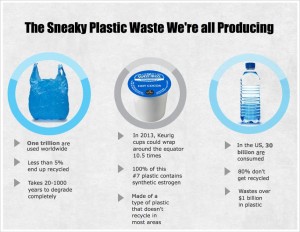 Earlier this week an article on Mother Jones highlighted a growing source of waste in American households – single serve coffee ‘cups’ used in coffee brewers like Keurig’s. According to the article, enough of these cups were sold in 2013 that they could have wrapped around the equator 10.5 times.
Earlier this week an article on Mother Jones highlighted a growing source of waste in American households – single serve coffee ‘cups’ used in coffee brewers like Keurig’s. According to the article, enough of these cups were sold in 2013 that they could have wrapped around the equator 10.5 times.
That’s a whole lotta trash. And specifically, a whole lotta plastic. And most of those little cups are made of #7 plastic, which is nonrecyclable in most areas (it is recyclable, however, here in Austin). In other words, most of those cups are going into landfills. What’s even worse is that a recent field testing of so-called safe plastics (they’re all BPA-free) revealed that 100% of #7 plastics tested contained estrogenic activity, the very characteristic that has made BPA so controversial. From a broader perspective, virtually all plastic leaches out chemicals over time, especially in the high heat and pressure environments found in landfills. This can result in soil, water and air pollution, especially when these plastics end up in our waterways.
In other words, plastic, and specifically, the plastic waste that we individually produce, is a problem. For those of us who are not using single serve coffee cups, there are two other large culprits in our plastic waste – disposable water bottles and plastic bags.
Every year in the United States, 30 billion bottles of water are consumed. That’s almost 100 bottles of water per person living in the US. What’s more is that 80% of those completely recyclable water bottles don’t get recycled, but end up in landfills, wasting over $1 billion in plastic that could have been recycled. To cap it all off, studies have proven that bottled water is not any better for you than tap water.
The other big culprit for plastic waste is plastic bags. Every year, over one trillion bags are used worldwide. 100 billion of those are used in the US, which ends up costing retailers around $4 billion. Less than 5% of these bags end up being recycled, and it can take anywhere from 20-1000 years for the bags to degrade completely. In the meantime, they break down into smaller pieces that readily absorb and leach toxins and are mistaken for food by animals. Plastic bag bans and taxes are already taking off across the country (including in Austin), and many stores offer small discounts for bringing your own bags.
The amount of waste created by water bottles, plastic bags, and even those little K-Cups is astronomical. Not only are plastics toxic and hard to degrade, fossil fuels are required to make them, making their environmental footprint large even when recycled. While many of our environmental challenges are difficult to grasp and often times overwhelming, one thing that each person can do is try their best to reduce the plastic waste they produce. Drink tap or filtered water from home and use a reusable (preferably metal) water bottle to refill throughout the day. Keep reusable bags in your car so you remember to use them at the grocery store. And if you own a single serve coffee machine, try and find a reusable filter to put your own bulk-bought coffee grounds in.
It’s been reported that every square mile of the ocean has 46,000 pieces of plastic in it, but each of us can control how much of that we put in there!
Are BPA-Free Plastics as Safe as You Think?
Posted in Consumers, Good Government, Health, Safety, Toxics, tagged BPA, health, plastics, safety, Texas on March 21, 2014 |
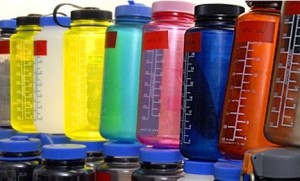 Bisphenol A. In an age of ever-growing consumer awareness and savy, many of us are familiar with this chemical, better known as BPA. We look for the phrase “BPA Free” on our water bottles, Tupperware containers and children’s sippy cups in the hopes we’re protected from negative health effects. Unfortunately, recent reports indicate that this is not the case.
Bisphenol A. In an age of ever-growing consumer awareness and savy, many of us are familiar with this chemical, better known as BPA. We look for the phrase “BPA Free” on our water bottles, Tupperware containers and children’s sippy cups in the hopes we’re protected from negative health effects. Unfortunately, recent reports indicate that this is not the case.
Despite the fact that Bisphenol A has been around for over a hundred years, it was only a few years ago in the late ‘00s that much of the danger around the endocrine-disrupting chemical came to light, ultimately leading to the FDA banning its use in baby bottles in July 2012. Despite this ban, which many would see as a confession of the chemical’s danger, the FDA maintains that BPA is still safe in small doses – it’s in everything from canned food to thermal receipt paper.
For those not as familiar, BPA is recognized as an endocrine-disrupting chemical – while in the human body it mimics estrogen. Although estrogen is produced naturally in both men and women, ingesting synthetic hormones can have drastic effects on the human body. BPA has been linked to a host of diseases and ailments, particularly breast cancer and hyperactivity. This is especially notable since recent estimates say that 1 in 8 women will be diagnosed with breast cancer in her lifetime and 1 in 5 high school-age boys in the US will receive an ADHD diagnosis.
While independent studies have found BPA to be highly dangerous in lower doses with “More than 95 percent of people in developed countries… exposed to levels of BPA that are “within the range” associated with health problems in animals, from cancer and insulin-resistant diabetes to early puberty”, the government is arguing that the chemical is still safe to use in small amounts. There are, however groups saying that the government study is flawed, mostly due to the fact that the control group in the study ended up being compromised.
Even if you limit your plastic use to only BPA-Free plastics, studies suggest you might not be as safe as you may think. A report published by Environmental Health Perspectives authored by a professor at University of Texas at Austin notes that “almost all” commercially available plastics tested contained “estrogenic activity” – the thing about BPA that makes it so dangerous. In the wake of all the attention around BPA, lots of tests have been done to test the potential health implications of other types of widely accepted plastics. A field guide to help decipher these plastics and the estrogenic activity of the chemicals in them can be found here.
One of the most concerning things about this plastics debate is the degree to which the chemical and plastic companies are subverting and ‘spinning’ information in an attempt to avoid regulation. As Public Citizen continues to push people before profits, it’s still important to try and do research on items you bring into your home whenever you can. When in doubt, avoid plastic if you can and opt for glass or metal containers or bottles.
Engaged Citizens Leave Standing Room Only at Public Hearing on the Austin Energy 10 Year Energy Plan
Posted in Air Quality, Austin Energy, Climate Change, Coal, Coal Plants, Consumers, drought, Efficiency, Energy, Fracking, Global Warming, Health, natural gas, Renewables, solar, Water, wind, tagged austin climate protection plan, Austin Energy, Austin Energy Generation Plan, Texas on March 18, 2014 |
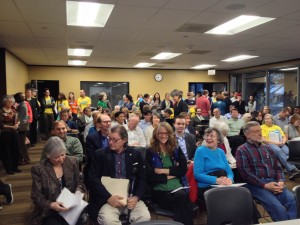 Austin Energy customers turned out in force to support renewable energy last night. Over 100 people packed the Shudde Fath Conference room at Austin Energy headquarters for a joint hearing in front of the Electric Utility and Resource Management commissions. Not prepared for the enthusiastic turnout, Austin Energy staff provided additional chairs, but many attendees were left with standing room only.
Austin Energy customers turned out in force to support renewable energy last night. Over 100 people packed the Shudde Fath Conference room at Austin Energy headquarters for a joint hearing in front of the Electric Utility and Resource Management commissions. Not prepared for the enthusiastic turnout, Austin Energy staff provided additional chairs, but many attendees were left with standing room only.
Over 50 people signed up to speak at the hearing, which extended well past the scheduled ending time of 8:00 pm to about 9:30 pm, forcing some to leave before they had a chance to voice their concerns.
Citizens expressed passionate concern about climate change, water availability, water contamination, air quality, health, job creation and equity. The common theme was overwhelming support for a rapid transition away from polluting fossil fuels to clean energy resources, including wind, solar, energy efficiency and energy storage.
Climate change was brought front and center as an issue that cannot be ignored and which demands immediate action. The commissions heard from numerous citizens that Austin will be judged by future generations based on what we do to mitigate our impact on the climate.
One point of contention between Austin Energy and advocates has been whether or not goals, including the carbon reduction and renewable energy goals, will be expanded as part of this update of the Austin Energy Resource, Generation and Climate Protection Plan. Austin Energy’s current goals were set as a starting point, but they aren’t nearly strong enough to protect our climate. Last night, with climate change already impacting our communities, Austin Energy ratepayers spoke clearly in favor of substantially expanding those goals.
With the ongoing drought still weighing on many minds, the connection between water and energy was repeatedly brought up throughout the evening. Citizens talked about water used in generating electricity at the Fayette coal plan and the billions of gallons used in Texas fracking jobs each year.
Austin Energy’s recent announcement of the 100-150 megawatt solar deal up for City Council approval this week added to the enthusiasm about renewable energy. That project will provide Austin Energy with energy at around 5 cents per kilowatt-hour and is projected to slightly reduce customer bills. Many ratepayers made the point that since wind and solar are already affordable, Austin Energy should support calls for increasing its renewable energy goals and should continue purchasing more wind and solar.


